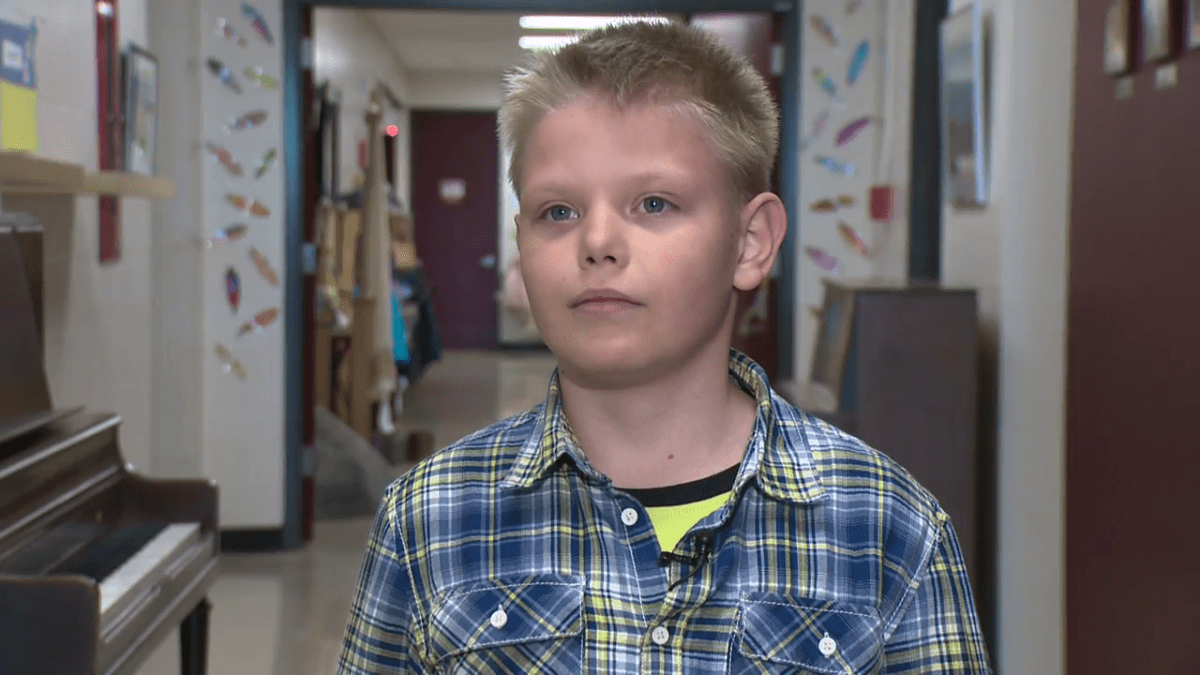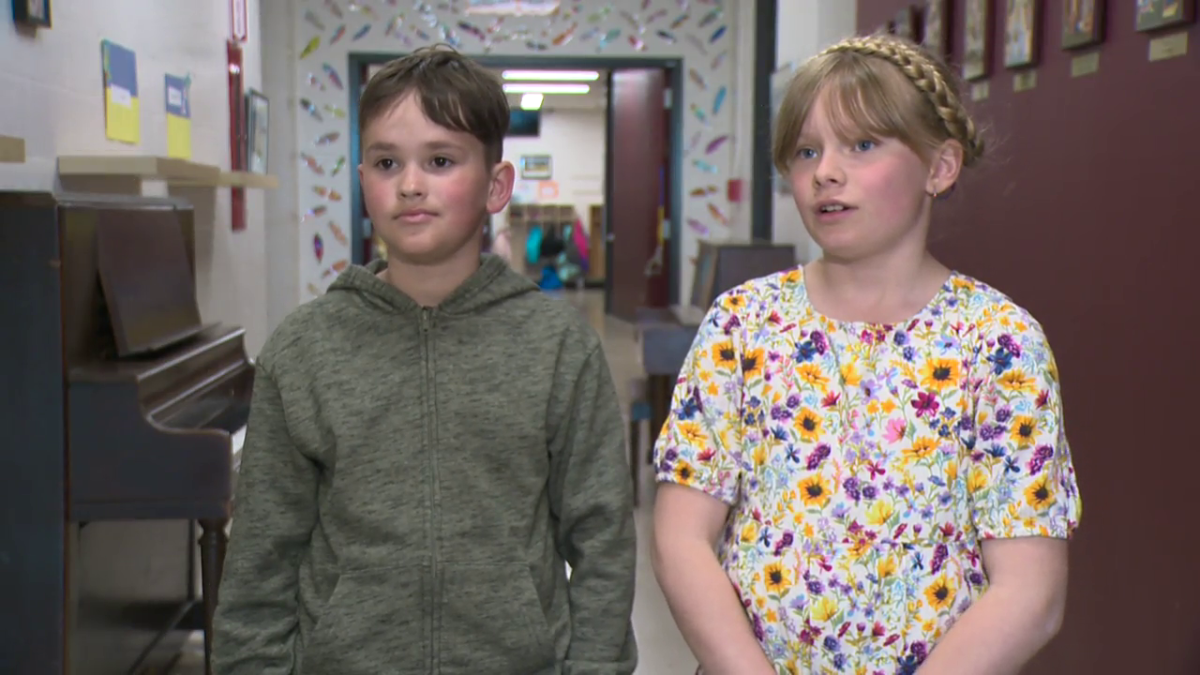A south Edmonton Catholic school has welcomed more than two dozen new students over the past several weeks — all children who have fled the war in Ukraine.

St. Martin Catholic School — a Ukrainian bilingual elementary school — has welcomed 32 new students, all of whom came to Edmonton from Ukraine.
“We seem to become a natural destination for some of the newcomers coming in Edmonton,” principal Angela Zapisocki said Monday.
“I think there’s that comfort level of choosing a school where they know the language, they understand the culture and traditions and so it does ease a little bit of that anxiety and trauma that they’re coming from leaving Ukraine.”
Zapisocki said many of the newcomers have families in Edmonton who have sponsored them. She said other families at the school who don’t have family in Ukraine stepped up to be sponsors as a way to help.
“It’s exciting. There were a lot of dark days right after the invasion for the school and for the staff and for our families. But this certainly has given us a different way of looking at things with a lot more hope, knowing that we can do something, that we can help.”
Their journeys to Canada haven’t been easy, but Zapisocki said the school division tries to do everything it can to make the transition into the school environment as seamless as possible.

One World…One Centre provides intake, assessment and support services to newcomer families who would like to attend an Edmonton Catholic school. Staff members help families complete the registration process and assess the student’s English language proficiency in reading, writing, speaking and listening.
When the new students arrive at St. Martin, staff and teachers will get the students’ desks prepared and spend time ensuring they are introduced to the other kids and that they feel welcome and comfortable.

Get breaking National news
“Some are really scared, very nervous, very shy. After an intake it’s quite common to see them grab their parent’s hand and pull them towards the exit,” Zapisocki said. “But the students here have been so welcoming. They’re so excited to have them that we find within a day their comfort level’s much higher.
“You think of the journey that they had from the point where they had to make the decision to leave and the process that they went through and then to finally find themselves in Edmonton and in a little elementary school — thankfully where someone can speak their language — they’re emotional.
“You can feel the pain. So we’re doing everything that we can to help.”
Katherine Rachmistruk is a Grade 2 teacher and learning coach. She said while it’s been challenging for the new students to get used to the new environment, bussing schedules and a different school routine than they would have back home, it’s also been very rewarding to see the local students help wherever they can.
“It’s heart-warming in our building to see all of our students welcoming them with open arms. Friendships are being made, learning is getting done. It’s wonderful,” she said.
Artem Yershov is one of the new students. He’s in Grade 5 and has been in Canada for about a month.
“There’s a lot of different things that aren’t in Ukraine,” he said. “There’s a lot of different lessons. For example, science, religion.
“I miss my friends. They are all in Ukraine but some people go to other countries.”
Yershov has made a lot of new friends already, and has found a few new favourite pastimes.
“I like going to play soccer outside, it’s my favourite routine. And I like math.”
Solomiya Marcinkoski is a Grade 4 student a the school. She and her family welcomed her cousin Kostia Radchenko into their home.
“Some kids, they know English a bit. But since he was born in Ukraine he really doesn’t know any English. He only knows a couple simple words. It’s kind of difficult to teach him,” she said.
Marcinkoski has been to Ukraine before to visit Radchenko, but said it was when she was about five years old. Since her cousin’s arrival, Marcinkoski said her family has taken him to different stores and locations throughout the city, as well as on hikes to get him used to life in Canada.
“It’s pretty cool how fast they can interpret all the new things in Canada,” Marcinkoski said.
The school anticipates another wave of new students from Ukraine sometime in mid-May.
With the large intake of new students, the school has hired an additional teacher and an English language educator from Ukraine who works in small groups, large groups and provides support to teachers. A Ukrainian speaking social worker also comes in a few days a week to provide liaison support between families and the school.
“That gives us the opportunity to really focus on helping our students acclimatize, make friends, learn the language, focus on that literacy and support their numeracy, and then we have that opportunity with our family worker to be able to bridge that help with jobs, help with supplies, supports – anything else they might need,” Zapisocki said.
According to the federal government, as of April 26, Canada had approved temporary resident applications for more than 70,000 displaced Ukrainians, the majority of whom are women and children.










Comments
Want to discuss? Please read our Commenting Policy first.